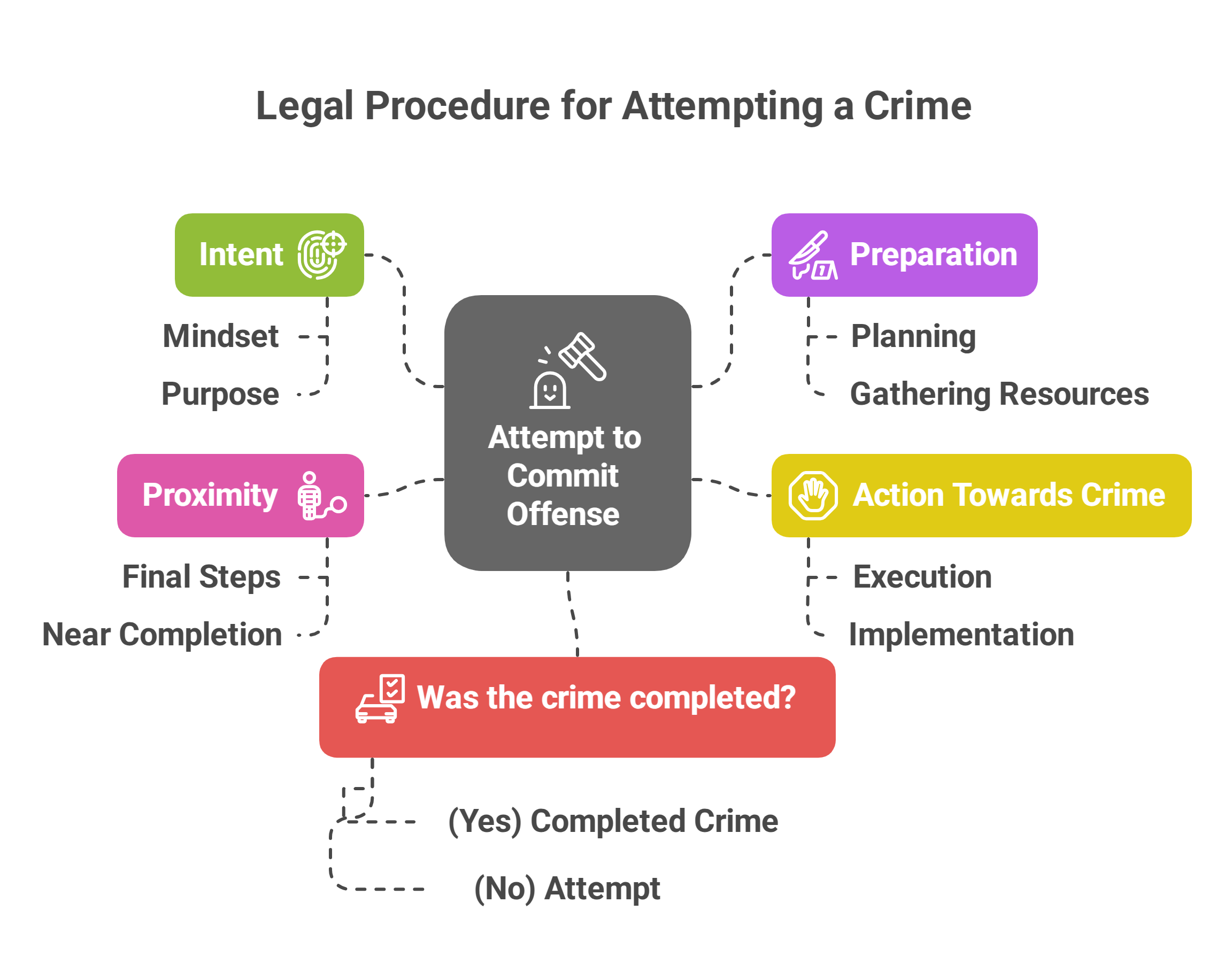Context:
The recent stay on a ruling by the Allahabad High Court by the Supreme Court has brought 'Preparation' vs. 'Attempt' issue to the forefront once again, particularly in relation to what constitutes an "attempt" to commit rape and how it should be treated in law.
The Legal Significance of 'Preparation' vs. 'Attempt'
The distinction between "preparation" and "attempt" is crucial in criminal law, especially when it comes to sexual offenses.
· Preparation refers to actions that an accused might undertake to ready themselves for committing a crime but stop short of committing the crime itself.
· Attempt, however, occurs when an individual takes significant steps toward completing the crime, although they may be unsuccessful. While preparation is often not punishable under most legal frameworks, an attempt to commit a crime is a criminal offense in itself and punishable by law.

Defining an ‘Attempt’ to Commit Rape or crime
In Abhayanand Mishra v. State of Bihar, the Supreme Court of India established key criteria for proving an attempt to commit an offense. To secure a conviction for attempt, the prosecution must demonstrate the following essential elements:
1. Intention: The accused must have had the intention to commit the offense.
2. Preparation: The accused must have taken preparatory actions to commit the crime.
3. Action toward the commission of the offense: This step goes beyond mere preparation and must involve an act that moves the defendant closer to completing the crime. Crucially, it does not need to be the final act before the crime but must be a step that signals the intent to commit the offense.
4. Proximity: The "penultimate act"—the act that is just one step away from completing the crime—must occur for an attempt to be made. This step is critical in defining when an attempt actually happens. The proximity of this act to the completion of the crime is key.
As clarified in State of Maharashtra v. Mohd. Yakub (1980), an attempt begins where preparation ends. Essentially, preparation is simply getting ready to commit a crime, whereas an attempt is when the actions start encroaching on the commission of the crime itself.
The Allahabad High Court’s Controversial Ruling
The Allahabad High Court’s ruling on March 17, 2024, exemplified the complexity in drawing a line between preparation and attempt. The court ruled that the actions of the accused—grabbing a minor’s breasts and attempting to break her pyjama string—did not rise to the level of an attempt to rape.
Instead, it reduced the charges to a lesser offense of assault under Section 354B of the Indian Penal Code (IPC), which addresses the use of criminal force with the intent to disrobe a woman or compel her to be naked.
Conclusion
The distinction between preparation and attempt has significant implications for how courts define and punish attempted rape. The Supreme Court's reconsideration of the legal standard for attempted rape may lead to changes in how such cases are prosecuted and punished in the future.







